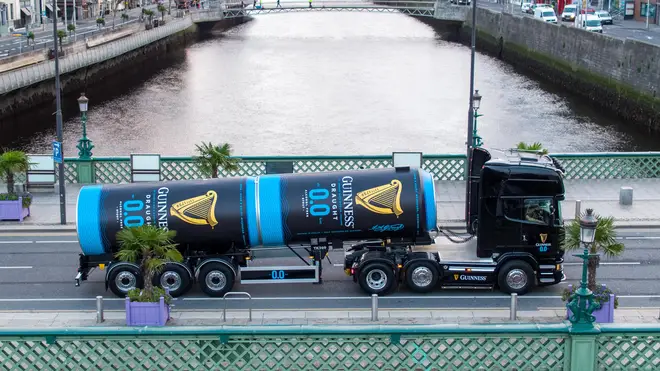
Natasha Devon 6pm - 10pm
3 July 2023, 12:14

Owners Diageo has invested 25m euro in a new facility at its St James’s Gate brewery in Dublin to meet the surging demand for non-alcoholic drinks.
Guinness will almost triple production of its zero-alcohol brand in response to a growing consumer taste for non-alcoholic drinks.
Owners Diageo has invested 25 million euro in a new facility at its St James’s Gate brewery in Dublin to meet a surge in demand for alcohol-free stout in the domestic and global markets.
The new production facility includes six processing vessels with a total capacity of 500,000 hectolitres – almost 90 million pints – and a two-storey building where the alcohol is removed through a cold filtration system to create Guinness 0.0.

Guinness 0.0 was launched in 2021 and the company forecasts it is on course to account for 10% of all Guinness sales on the island of Ireland in the coming years.
The main export markets for the zero-alcohol stout include Great Britain, Europe, the United States, Canada, the Middle East and South Korea.
Managing director of Diageo Ireland, Barry O’Sullivan, said Guinness 0.0 is now the top selling non-alcoholic beer in four-pack format on both the island of Ireland and Great Britain.
“This expansion in production capacity at St James’s Gate is a testament to the quality of Guinness 0.0 and the growth of the non-alcoholic category as consumers look for more choice on different occasions,” he said.
“We expect the growth of Guinness 0.0 to be another export success story for Ireland.”
Publican Oliver Barden from O’Donoghue’s in Dublin said zero-alcohol stout is becoming very popular.
“It’s a great tasting alternative for those that want to experience the atmosphere and craic in the pub without any alcohol,” he said.
“I imagine this demand will continue to grow as the availability and quality of non-alcoholic products becomes more widespread.”